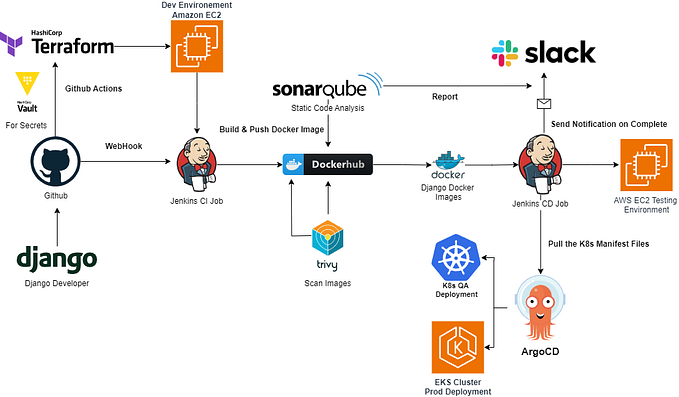Efficient CI/CD with Shared Configurations in GitLab

In the realm of Continuous Integration and Continuous Deployment (CI/CD), maintaining consistency across multiple projects can be challenging. GitLab CI offers a powerful feature called “Shared CI Configurations”, enabling teams to streamline their CI/CD workflows and foster code reuse.
In this blog post, we’ll explore how to leverage shared CI configurations to enhance efficiency and maintain a standardized approach across projects.

Understanding Shared CI Configurations:
GitLab’s Shared CI Configurations allow teams to define CI/CD configurations in a separate repository and then include these configurations in other projects. This approach promotes code reuse, reduces duplication, and ensures a uniform CI/CD setup across different repositories.
Use Case: Reusable CI Configurations for Mini-Apps
Consider a scenario where a development team is managing several mini-apps or modules within a larger project. Each mini-app shares common CI/CD steps, such as building, testing, and deploying. Instead of duplicating these configurations in each mini-app, the team can centralize the CI/CD setup in a shared configuration repository.
Getting Started:
Create a Shared CI Configurations Repository: Start by creating a new repository specifically for storing shared CI configurations. This repository will house the .gitlab-ci.yml file and any scripts or configurations that multiple projects can reuse.
Define Shared CI Configurations: Craft the CI/CD configurations in the shared repository according to the needs of your projects. Consider defining stages, jobs, and environment variables that are commonly used across projects.
# .gitlab-ci.yml in Shared CI Configurations Repository
stages:
- build
- test
build_job:
stage: build
script:
- echo "Building the application..."
test_job:
stage: test
script:
- echo "Running tests..."Include Shared Configurations in Projects:
In each mini-app or module repository, include the shared configurations using the include directive in the project's .gitlab-ci.yml file.
# .gitlab-ci.yml in Mini-App Repository
include:
- project: 'your-group/shared-ci-configurations'
file: '/path/to/.gitlab-ci.yml'
ref: mainAdvantages of Shared CI Configurations:
- Consistency Across Projects: Shared CI configurations ensure that all mini-apps within the project follow the same CI/CD process. This consistency is crucial for a unified development and deployment experience.
- Ease of Maintenance: Updates or improvements to the CI/CD pipeline can be made in a single location — the shared configurations repository — making maintenance more straightforward.
- Code Reusability: Reusing CI configurations reduces redundancy and minimizes the effort needed to set up CI/CD for each mini-app. This is especially beneficial in projects with many modules.
Conclusion:
Shared CI Configurations in GitLab CI offer a powerful solution for maintaining a cohesive CI/CD strategy across multiple projects. By centralizing configurations, teams can enhance consistency, reduce duplication, and optimize their development workflows. As teams continue to embrace CI/CD best practices, the use of shared configurations becomes a valuable asset in their toolset.






